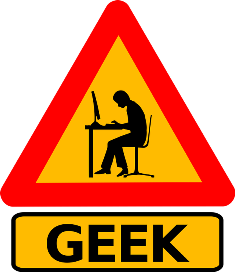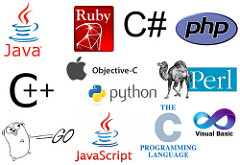Why do Non-Computer Science Majors become better and competent programmers?
Caution: Both the contents and the comments which might come up in this article are not to bring down or ridicule a degree in Computer Science in order to become a competent programmer, but to discuss it with respect to the two phases, programming in academics and programming in industry. Thereby, readers are advised to read this article with a clear mind.
Having said this,
let’s relax and enjoy the contents
Rationale
The rationale behind this topic was the comment made by @gentleshaid on my post titled: Programming language, Human language and The Brain, where I discussed extensively the correlation between programming language, human language and the brain, needs to venture into programming as a brain booster was also discussed and it lured many non-computer science majors into thinking that "Can Non-Computer Science Major become a better and competent programmer?".
Introduction
No doubt, we must have seen or heard about people who either drop out of a college or did not have a degree in computer science and yet they are good in programming and and if not, permit me to mention few notable Technology Billionaires who can be referred to as competent and successful programmers with no degree in computer science.
| Name | Degree | Remarks |
|---|---|---|
| Bill Gates | Dropped out | He started college at Harvard University in 1973 , but dropped out two years later to establish Microsoft. |
| Paul Allen | Dropped out | He started college at Washington State University, but dropped out two years later to become a programmer for Honeywell. He co-founded Microsoft in 1975. |
| Larry Ellison | Dropped out | He is a co-founder and CEO of Oracle, He left University of Chicago in 1977 after just one semester. |
| Mark Zuckerberg | Dropped out | He started college at Harvard University until he dropped out in June 2004 to create Facebook. |
| Jan_Koum | Dropped out | He dropped out to work at Yahoo before he created WhatsApp, it was later acquired by Facebook in 2014. |
| Dustin Moskovitz | Dropped out | He started college at Harvard University until he dropped out to work at Facebook in 2014. |
| Elon Musk | Degree in Physics and Economics | He started a PhD( physics) at Stanford University in 1995 and later dropped out after two days. |
| Jack Dorse | Dropped out | He started college at the Missouri University of Science and Technology before he was transferred to NYU and later dropped out to start Twitter. |
| Evan Williams | Dropped out | He started college at University of Nebraska Lincoln until he dropped out after a year and a half to work in a number of different startups. He later co-founded twitter |
However, this does not interpret that there are not numerous programmers who have a degree in computer science and are also competent programmers. This topic is open for debate, your psychological view, clear thought and constructive criticisms are welcomed, as it is very necessary to bridge the wider gap between the academics in general and the industry in order for our academics setting to regain its reputation once again.
Subject Matter
Anyone who has passed through the university system cannot deny the fact that one spends more time in understanding theoretical aspect of one’s profession than the practice itself, which does not directly determine one’s competence in the field. Most time, Programmers rely on the coding experience and mentors in order to be a competent programmer rather than the theoretical knowledge being taught mostly in the universities.
Verily, the technology industry is changing every day and the changing is not in direct proportion to the changing in academics, which later create a wider gap between the academics and the industry, making the major students in academics to lag behind their fellow colleagues on the street who are either minor or major students.
The best way to become a competent programmer is through practical coding, developing an application that solves real world or community problem. One can learn from example and to have a mentor who can put you through when things get hard rather than depending on the syntax and the university theoretical knowledge. Just like I mentioned in my introductory section, 'few notable Technology Billionaires who can be referred to as competent and successful programmers with no degree in computer science or were dropped out from the universities', they all started coding on their own, developing themselves and become better programmer, none of them has ever attributed their competence to any universities.
According to the founder of 'Free Code Camp' Quincy Larson,
The best way to learn to code is by coding and the best projects are real-world projects where people will actually use the code you’re writing. This makes you accountable to them. You have to listen to their needs and build features accordingly. sourcs
Factors affecting student's performance in programming
Researchers from the academic settings have long ago trying to identify the factors affecting student's performance in programming, some researchers based their research finding on finding the reason why programming is easier for some students than others, some researchers based their research on the likely course which student must pass in order to excel in programming.
Although, Various probable factors like student's performance in mathematics, knowledge/mastery of the course and teaching techniques used, lecturers punctuality and regularity, environment, background, students’ personal interest in programming, thinking ability, cognitive characteristics, students’ regular attendance of classes and students perception about programming. e.t.c have been identified up to date.
However, I will not dwell much on these factors, since their findings and results have been proven to be inconsistent and still subjected to the performance within the university system and not the programming in the real world (industry).
By now, we should have seen many cases where students performed well in programming courses but cannot think of how to find a befitting solution to a problem in a real life, let alone developing a working application using a suitable programming language.
Just like I explained in my introductory section, many successful developers today did not have a degree in programming courses let alone having the best grades in programming courses, although that does not mean they would not have performed well in the classroom programming.
One's performance in programming involves devotion, putting all hands on the desk, especially regular coding, solving and pursuing different challenges, being street-wise in terms of looking for the latest technology invoke, having a mentor that is more experienced in the field and learning from different programmers will definitely affect one's performance in programming.
Conclussion
To Write-off non-computer science major in programming and technology related fields is definitely a big mistake in today's ever increase in information and communication technology, in fact, there are many people who I did not mention in this article that are not only performing but leading in tech-related fields.
According to Quincy Larson, a programmer, who ventured into programming world after his graduate school.
I don’t believe a person is born to be a programmer any more than someone is born to be a coal miner. People learn new skills all the time and can rise to the challenge of learning to code and to productively work as part of a software development team. source.
Having discussed this, I want to be optimistic that interested non-computer science major will be motivated and encouraged to consider venturing into programming or any tech-related fields.
Are you non-computer science major? Are you performing well in programming or tech-related fields?
Your thoughts are important.
References
1. Jan_Koum
2. Larry Ellison
3. Paul Allen
4. Bill Gates
5. Dustin Moskovitz
6. Jack Dorse
7. Evan Williams
8. Mark Zuckerberg
9. Elon Musk
10. I dont believe a person is born to be a programmer any more than someone is born to be a coal
11. 6 Reasons You Don't Need A Technical Degree To Excel In Tech
12. What’s the difference between college-level and corporate programming?
13. 3 Questions With freeCodeCamp Founder & Teacher Quincy Larson
All images are from free source websites (pixabay and flickr)
You can read my previous articles on programming here:
If you write STEM (Science, Technology, Engineering, and Mathematics) related posts, consider joining #steemSTEM on discord here. If you are from Nigeria, you may want to include the #stemng tag in your post. You can visit this blog by @stemng for more details. You can also check this blog post by @steemstem here and this guideline here for help on how to be a member of @steemstem. Please also check this blog post from @steemstem on the proper use of images devoid of copyright issues here.







Anyone can learn programming languages if they have interest. It depends on the aptitude of the person. And they certainly can excel the computer experts. All depends on the interest and aptitude I would say.
You mean interest and aptitude matters a lot?
Yes, I believe. I have friends who are very good at programming but their education is about something totally non-technical.
It is also scientifically proven that you can perform better on tasks on which you have high score on aptitude tests
You are right, my brother!
well said! Programming should not be restricted to academics its impossible for universities also to teach everything its the extra effort you have to put in order to learn programming .
Exactly, nice to hear from you @akshaybhoopalam.
You just gave a ray of hope that i can also be a good programmer. I've been battling with html and css for a while now. I think its time to go back to the board!
You are always welcome @rharphelle, nice to read your beautiful thought.
Similarly, people with degree in another topic are good computer programmers as well. This works both way I think and one should not generalize :)
Of course, you are right sir.
Interesting article. I want to believe a first degree in computer science does not make anyone a good programmer unless such person venture into extra classes. First degree is actually the basics, just as a degree in accounting doesnt make anyone an accountant.
Exactly. Thanks for stopping by, bravo!
Also, the thing that you practice, the problems you face with, the solutions you come up with and their understanding will remain in your memory much longer than any solution you've seen or any information you've heard about. Practice, practice, practice.
What a great proverb! I am glad to read your noble and exciting comment @bachuslib. Thanks for stopping by.